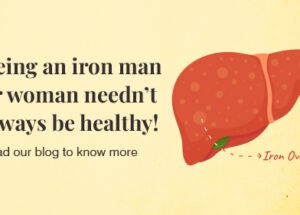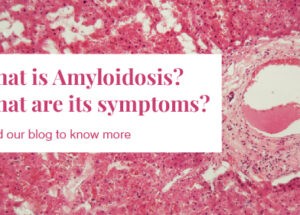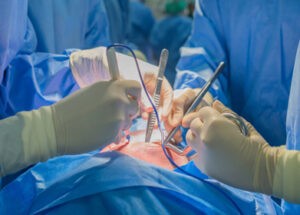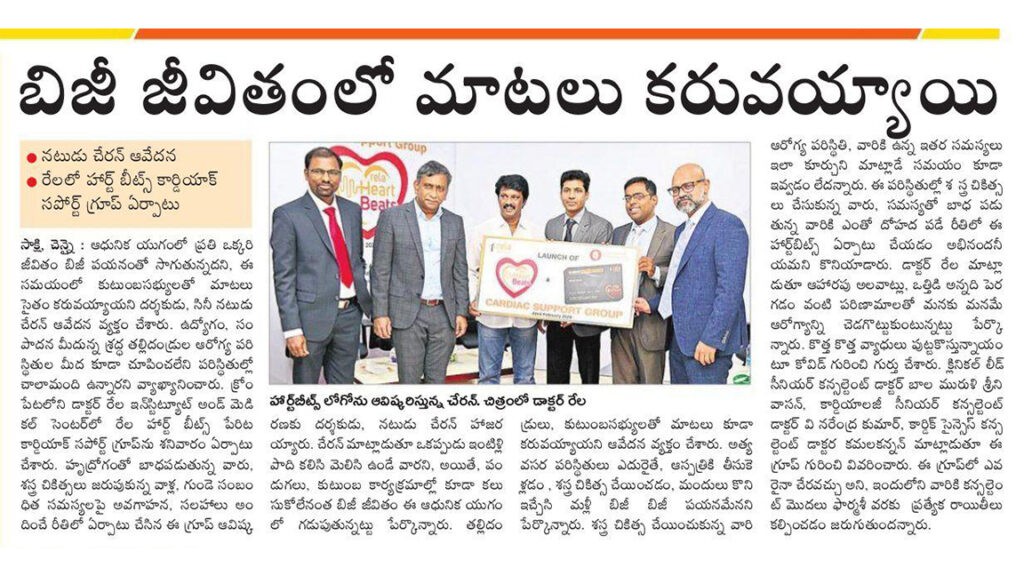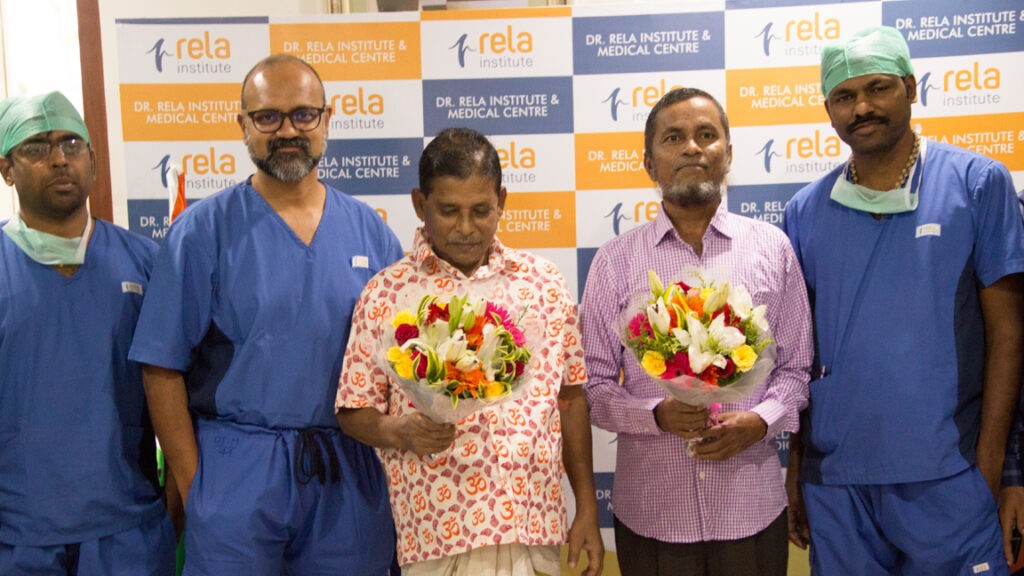Heart Transplantation
A heart transplant becomes necessary to save a patient’s life when the heart is no longer functioning properly because of chronic cardiovascular disease. During a cardiac transplant, a surgeon will remove a patient’s damaged or diseased heart, and replace it with a healthier heart from a suitable donor.
Rela Hospital has an intense transplant programme that is managed by multi-disciplinary teams and we provide patients with the required medical expertise by specialists such as nephrologists, cardiologists, pulmonologists and transplant surgeons, and with on-going support from psychologists, dieticians as well as patient-experience support groups. The multi-disciplinary team of experts are available to patients and their families throughout the different phases of the transplantation process.
From initial evaluation through post-transplant checkups, our skilled and compassionate heart transplant team in Chennai works with the patient and the family to ensure the best- possible outcomes at every step of the journey.
Procedure Details
Patients who are candidates for a heart transplant typically have heart failure for which other treatments have been unsuccessful. Some of the most common causes of heart failure include the following conditions:
- Cardiomyopathy (genetic, hypertrophic, idiopathic, infectious, post-pregnancy, post-viral, or restrictive)
- Congenital heart defects
- Heart damage caused by a heart attack
When nontransplant options have been explored to treat heart failure, Rela Hospital doctors evaluate the patients and conducts several different types of tests:
- Blood tests
- Cardiac Catheterization
- X-rays
- Ultrasound
- Echocardiogram (ECHO)
- Electrocardiogram (EKG/ECG)
- Stress test
- Urinalysis
Left Ventricular Assist Device
Following the evaluation, our cardiac experts may recommend a left ventricular assist device, or LVAD, implanted. This is an electric heart pump that helps heart pump blood to the body. The LVAD may be used to manage heart failure until the patient gets a heart transplant. This is called bridge to transplant therapy.
If the patient is considered ineligible for a heart transplant, our team may recommend destination, or lifelong, LVAD therapy. The process is like the evaluation process for a heart transplant.
Heart Transplant Candidacy
If, after the evaluation is complete, our team determines that that the patient is a transplant candidate, then we help prepare for candidacy. Our transplant nurse coordinator places the patient list to search for donor hearts. After the patient has been placed on the waiting list for a donor heart, he/she need to be prepared for surgery whenever a heart becomes available.
When a suitable heart becomes available, the patient is admitted to the hospital and prepared for heart transplant surgery.
Transplantation Procedure
Heart transplantation usually takes 4 to 6 hours, but the preparation and recovery may add several hours. The procedure is performed in the cardiothoracic operating room (OR).
- Prior to starting the procedure, patient will receive a local anesthetic. Once sedated, the doctor may insert a breathing tube through the throat into the lungs and connect to a ventilator.
- Doctor will administer general anesthesia.
- The procedure begins when the doctor cuts the breastbone (sternum) in half and spreads both halves to gain access to the heart (open-heart surgery).
- For this type of surgery, the heart must be still. Prior to doing so, doctor will place tubes into the heart so that blood can be pumped through the body by use of a heart- lung machine. This machine takes over for the heart by replacing the heart’s pumping action and the lungs by adding oxygen to the blood.
- Once the blood has been diverted into the bypass machine for pumping, doctor will then stop the heart by injecting it with a cold solution.
- When the heart has been stopped, doctor will remove the diseased heart and replaced it with the donor’s heart. Once new heart is in place, doctor will connect the blood vessels carefully so there are no leaks. Once checked, the doctor will let the blood circulating through the bypass machine back into the heart.
- If the new heart is not restarting after the procedure is complete, a mild electric shock may be used to restart it.
- The doctor may also put temporary wires for pacing into the heart. These wires can be attached to a pacemaker, if needed, during the initial recovery period.
- Once the procedure is complete, the machine will be turned off. The tubes will be removed and the sternum will be sewn together with the use or sutures or surgical staples.
Recovery & Outlook
After the surgery, the patient is taken to the cardiothoracic intensive care unit (CTICU) for further observation for several days. Heart transplantation typically requires a hospital stay of 7 to 14 days, or even longer. Other procedural recommendations include:
- The breathing tube is removed when the patient wakes up from anesthesia.
- Diet is started the day after surgery with liquids, and quickly advanced to solids as tolerated
- Ambulation is started on the first or second day of surgery
- Urine catheters and drainage tubes (chest tubes) are removed after 24 to 48 hours
- If patient has pacing wires, doctor will remove those too
- Blood samples will be taken often to monitor new heart, as well as other body functions
- Healthcare team closely watches anti-rejection (immunosuppression) medicines to make sure right dose and the best combination of medicines are being provided.
- Nurses, respiratory therapists, and physical therapists will work with the patient as physical therapy and breathing exercises begin.
- A cardiac rehabilitation program may also be suggested
Life After Transplantion
Heart transplant offers a new lease of life to those who have experienced advanced heart failure or life-threatening congenital heart abnormality. But life will not be the same and patients will have to accept the new normal. Once the patient leaves the hospital, there are few things that they will have to accept:
- Monitoring: For the first several months after a heart transplant, patient will return frequently to the hospital for testing that may include blood tests, lung function tests, electrocardiograms and biopsies of the heart tissue. These tests help doctor detect any sign of rejection of the organ.
- Rehabilitation: Patients need to begin a program of cardiac rehabilitation to improve health, build strength and gradually increase activity level.
- Medications: Patients will need to take anti-rejection drugs (immunosuppressants) to keep body from interpreting the new organ as a foreign object. These powerful drugs have various side effects, so doctor will work to determine the combination that works best.
- Infection Prevention: Risk of infection is greater for a heart transplant patient. Patients are advices to avoid situations where they may be exposed to infectious conditions, such as crowded spaces and contact with animals (especially their feces)— at least for the first months after the surgery.
- Sex and Pregnancy: After a period of healing, usually about 12 weeks, patients should be able to resume sexual activity without risk of injury. Some men do experience erectile dysfunction after a heart transplant so talk with the doctor about possible treatments if necessary. Any woman wishing to get pregnant will require extra care throughout the pregnancy and childbirth.
Why Rela Hospital?
As leading heart transplantation hospital in Chennai as well as heart transplantation experts in India, Rela Hospital is the best choice for any patient who needs heart transplantation surgery. With the transplant team headed by extremely skilled Dr. Mohan R, patients are choosing one of the top heart transplant centres in the region. Rela Hospital care includes experienced surgeons, doctors and staff who have high level of expertise in heart and lung transplants. Rela Hospital patients range in age and have almost every type of severe heart condition. We are experts with expertise!




